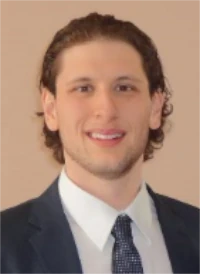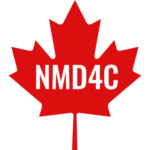Matthew Triolo

BSTC General Member
Postdoctoral Fellow, Khacho Lab, University of Ottawa
Research Interests: Skeletal muscle, muscle stem cells, aging, atrophy, mitochondrial biology, autophagy
Google Scholar profileResearchGate profile
ORCiD profile
Twitter profile
Biography
Dr. Matthew Triolo is a Postdoctoral Fellow working within Dr. Mireille Khacho’s laboratory in the Faculty of Medicine at the University of Ottawa. Matthew first completed his BSc in Kinesiology and Health Science with a Minor in Biology at York University. After completing his MSc investigating whether electrical pulse stimulation can enhance muscle cell activity under the guidance of Dr. Michael Connor, he subsequently worked towards his PhD as a member of the Muscle Health Research Centre at York University. While under the supervision of Dr. David Hood, his work focused on skeletal muscle autophagy, mitophagy and lysosome biogenesis in the context of aging, disuse, and exercise. As a Postdoctoral Fellow, Dr. Triolo is investigating mechanisms by which mitochondria regulate signaling in muscle stem cells for its implications on skeletal muscle regeneration and repair. He enjoys playing a variety of sports including hockey, golf and baseball, and spending time with his family, friends, and cats.
Read Dr. Triolo’s Early-Career blog!
Recent Publications
Triolo, M, Khacho, M. Protocol to monitor live-cell, real-time, mitochondrial respiration in mouse muscle cells using the Resipher platform. STAR Protoc. 2024.5 (4)103330 PMID:39305486
Triolo, M, Baker, N, Agarwal, S, Larionov, N, Podinić, T, Khacho, M et al.. Optic atrophy 1 mediates muscle differentiation by promoting a metabolic switch via the supercomplex assembly factor SCAF1. iScience. 2024.27 (3)109164 PMID:38414856
Triolo, M, Wade, S, Baker, N, Khacho, M. Evaluating mitochondrial length, volume, and cristae ultrastructure in rare mouse adult stem cell populations. STAR Protoc. 2023.4 (1)102107 PMID:36853728
Picca, A, Triolo, M, Wohlgemuth, SE, Martenson, MS, Mankowski, RT, Anton, SD et al.. Relationship between Mitochondrial Quality Control Markers, Lower Extremity Tissue Composition, and Physical Performance in Physically Inactive Older Adults. Cells. 2023.12 (1) PMID:36611976
Vainshtein, A, Slavin, MB, Cheng, AJ, Memme, JM, Oliveira, AN, Perry, CGR et al.. Scientific meeting report: International Biochemistry of Exercise 2022. J Appl Physiol (1985). 2022.133 (6)1381-1393 PMID:36356257
Triolo, M, Bhattacharya, D, Hood, DA. Denervation induces mitochondrial decline and exacerbates lysosome dysfunction in middle-aged mice. Aging (Albany NY). 2022.14 (22)8900-8913 PMID:36342767
Baker, N, Wade, S, Triolo, M, Girgis, J, Chwastek, D, Larrigan, S et al.. The mitochondrial protein OPA1 regulates the quiescent state of adult muscle stem cells. Cell Stem Cell. 2022.29 (9)1315-1332.e9 PMID:35998642
Triolo, M, Oliveira, AN, Kumari, R, Hood, DA. The influence of age, sex, and exercise on autophagy, mitophagy, and lysosome biogenesis in skeletal muscle. Skelet Muscle. 2022.12 (1)13 PMID:35690879
Triolo, M, Slavin, M, Moradi, N, Hood, DA. Time-dependent changes in autophagy, mitophagy and lysosomes in skeletal muscle during denervation-induced disuse. J Physiol. 2022.600 (7)1683-1701 PMID:35067920
Triolo, M, Hood, DA. Manifestations of Age on Autophagy, Mitophagy and Lysosomes in Skeletal Muscle. Cells. 2021.10 (5) PMID:33946883
See more on PubMed